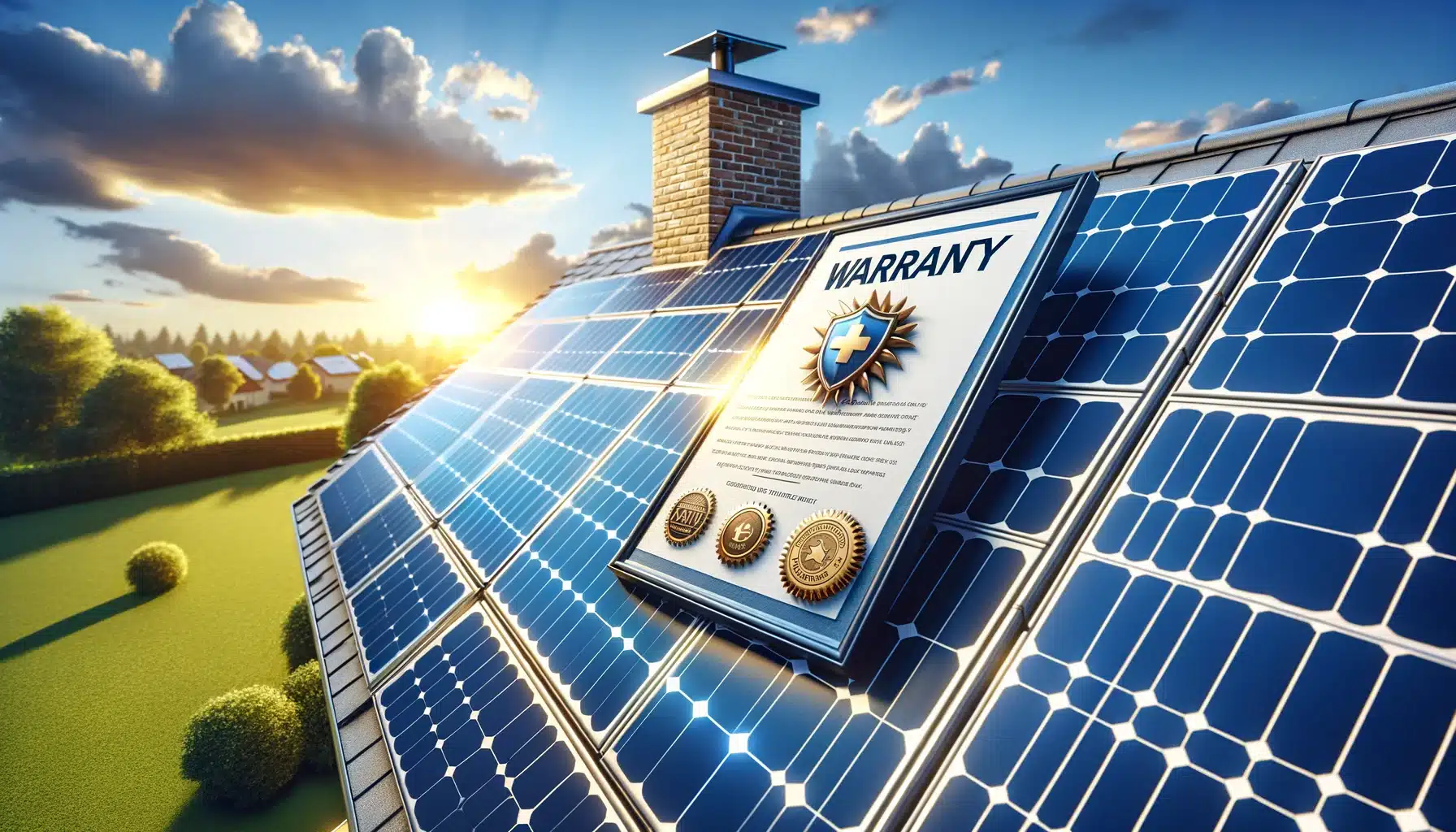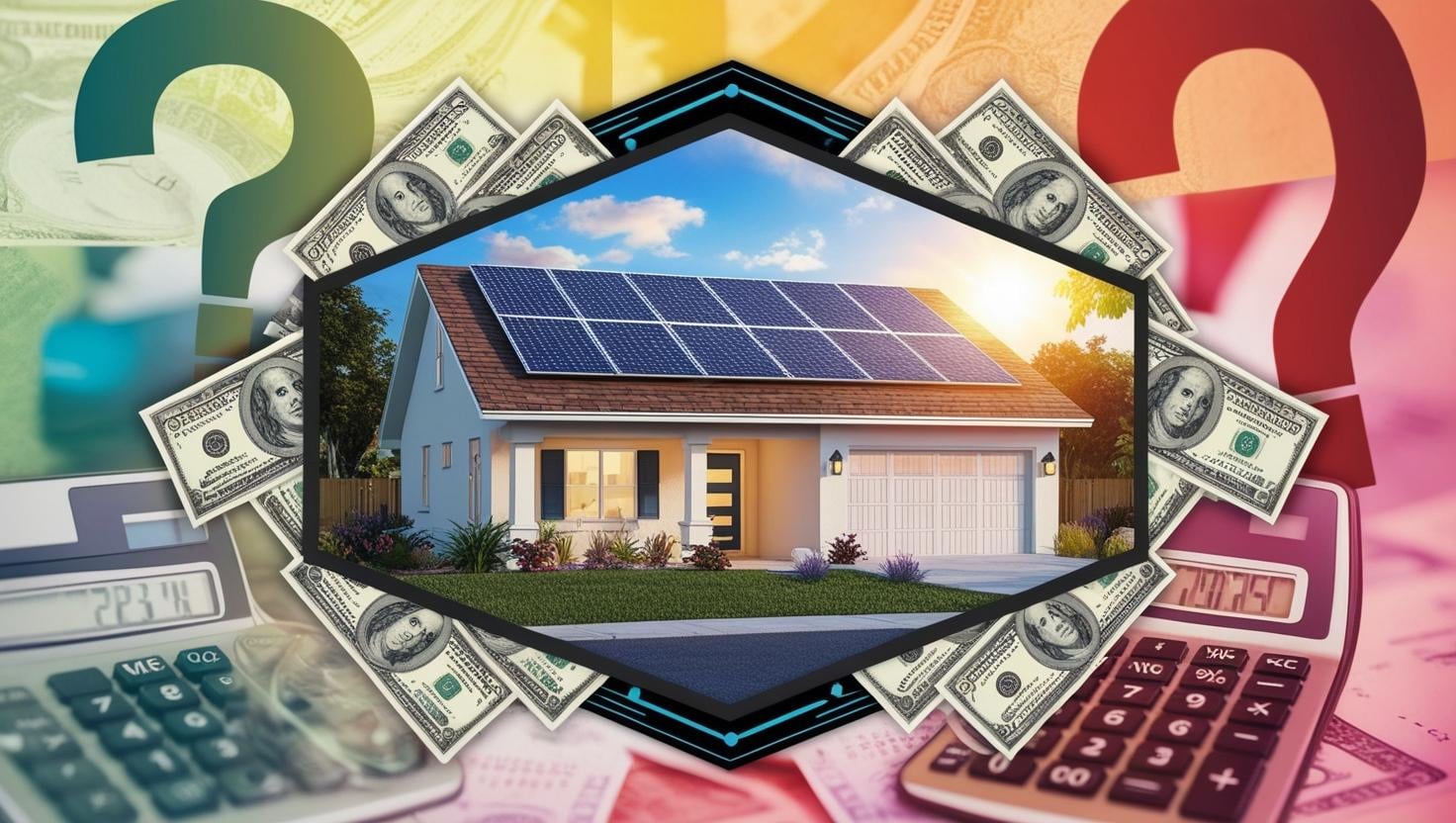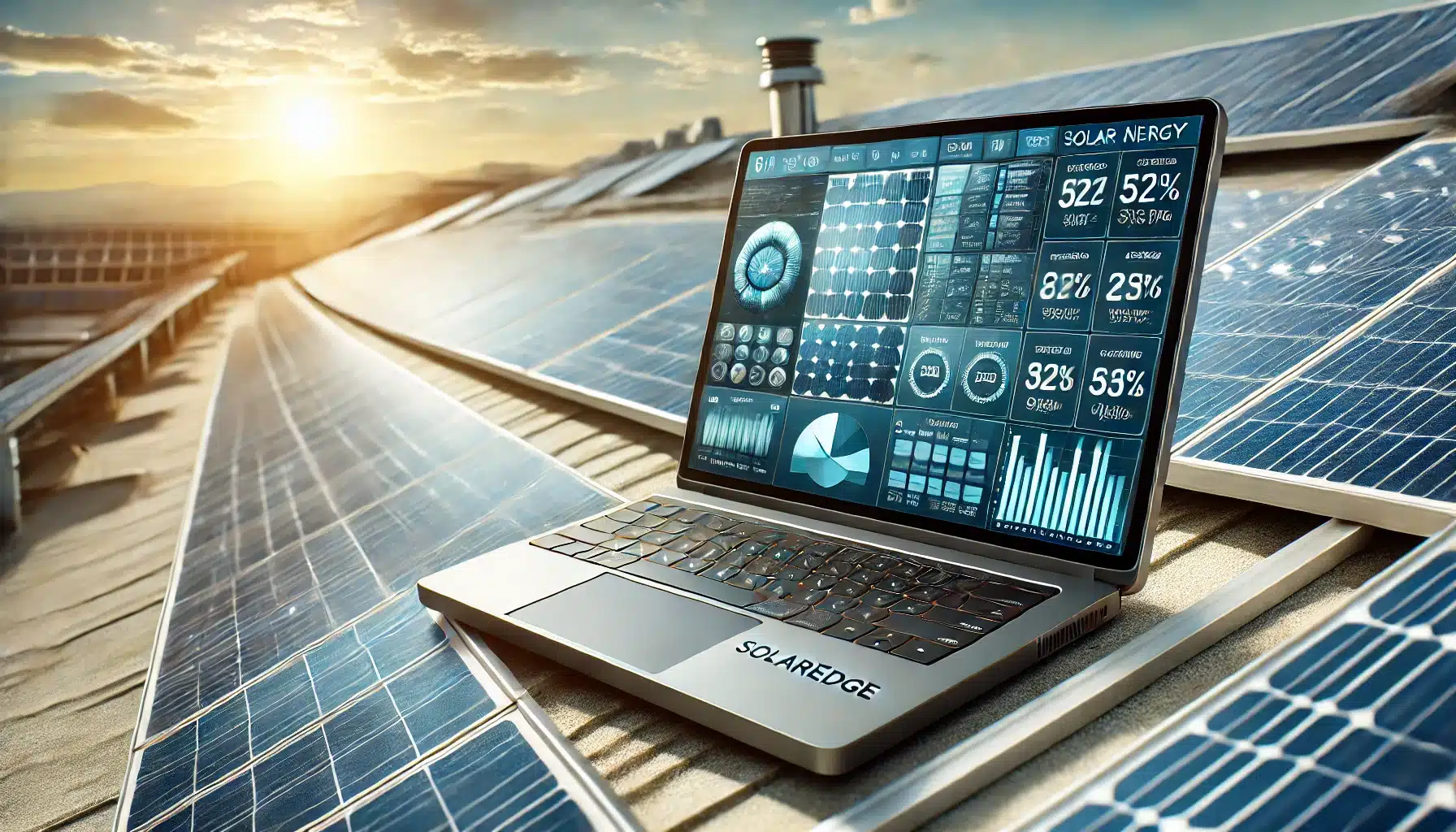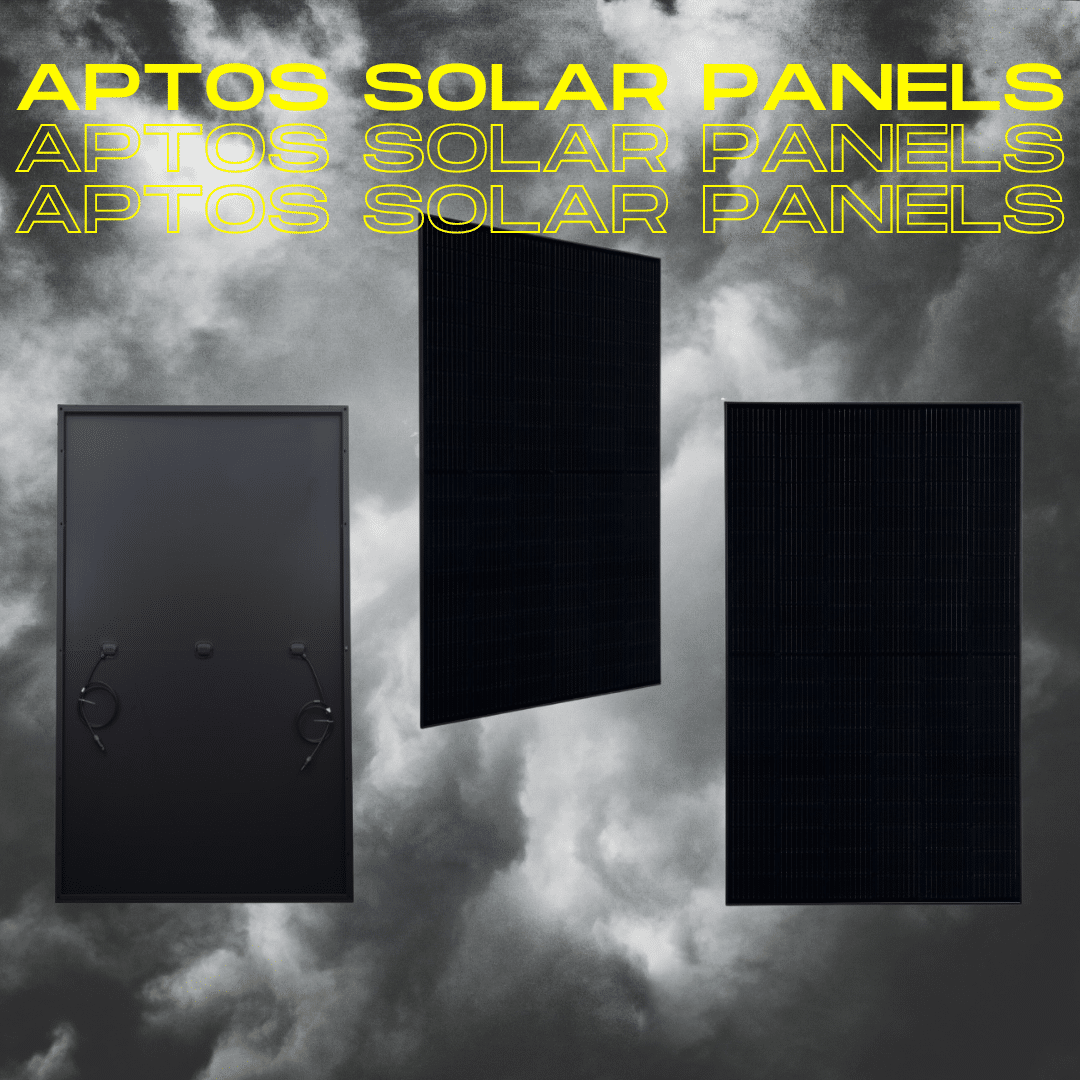A solar warranty protects your solar energy investment by covering defects and ensuring performance. This article will guide you through the types of solar warranties, what they typically cover, and key factors to consider.
We’ll also look at common exclusions and how to compare warranties to ensure comprehensive protection for your solar panels.
Key Takeaways
- Understanding different types of solar panel warranties—product, performance, and labor—is crucial for protecting your solar investment from defects and ensuring sustained energy production over time.
- Thoroughly reviewing the fine print and exclusions of solar warranties helps in anticipating coverage details, explicitly spotting what is and isn’t covered to avoid unexpected costs and ensure comprehensive safeguarding.
- Considering additional protection plans or enhancing homeowners insurance can provide an extra layer of security against environmental damage and unauthorized modifications, ensuring durability and reliability of the solar system.
Understanding Solar Panel Warranties
Venturing into the world of solar energy is not only an investment in cost-efficiency and eco-friendliness, but also a pledge towards an environmentally-friendly future. But what ensures this investment remains secure?
This is where solar panel warranties come into play, serving as silent protectors for your solar panels. They shield your solar system against potential unpredictabilities, whether they stem from natural wear or unforeseen technological defects.
We will delve into the domain of solar panel warranties to gain insight into their critical function within any given solar installation setup.
Types of Solar Warranties
When exploring solar panel warranties, there are three main types of protection to consider.
- Firstly, product warranties guarantee the quality of craftsmanship and materials used in your panels, assuring that they are devoid of any defects.
- Secondly, performance warranties serve as a promise that your panels will meet their energy production goals throughout their lifespan.
- Finally, labor warranties provide coverage for the work involved in installing the solar system—including diagnosing issues and performing repairs.
Together these warranty varieties play an essential role in maintaining both the health and effectiveness of your solar energy systems. They create a protective framework designed to support your commitment to harnessing solar energy.
What Solar Panel Warranties Typically Include
What do these guarantees Include? Product warranties serve as your protection against unexpected issues, encompassing a range of defects from improper wiring to early degradation.
Should your panels fail to meet the expected performance, these warranties will be there for you. While their primary concern is with hardware, certain warranties also include coverage for labor costs—this provision differs depending on the manufacturer.
Consider it akin to having a celestial protector watching over your solar installation. Reassuring that any glitches encountered along the way are merely small obstacles in your path towards sustainable energy.
The Importance of Reading the Fine Print
The saying “the devil is in the details” resonates strongly when examining solar warranties. Just as consulting a map before embarking on a trip can guide you and help you avoid potential hazards, closely inspecting the minute details of your warranty will illuminate both its coverage scope and exclusions, which is crucial.
Delving into the particulars empowers you with knowledge to smoothly navigate warranty claims. This preparation guarantees that support is available precisely when it’s indispensable.
Performance vs. Product Warranties
In the arena of solar warranties, two key types stand out: performance and product warranties. Although they initially appear alike, their functions in sustaining your solar system’s lifespan are distinctively different.
Performance warranties assure sustained energy output from your system, whereas product inquiries provide assurance regarding the condition of the panels themselves.
Grasping the subtle distinctions between these warranty types is analogous to recognizing the unique contributions of both the sun and moon within our sky—each one essential in its own right and together ensuring equilibrium within your investment in solar technology.
Performance Warranty Details
Performance warranties serve as endurance champions among guarantees, committed to lasting durability. They provide an assurance that your solar panels will maintain a specified level of productivity over their lifespan. Imagine them as a binding agreement with the producer, confirming that your panels won’t falter prematurely.
These assurances typically extend for 25 years and stand as evidence of solar technology’s longevity. They assure you that, years down the line, your panels will still be capturing solar energy with exceptional vigor.
Product Warranty Details
Transitioning to the subject of product warranties, these guarantees cover the structural soundness of your solar panels. Whether it concerns the silicon cells or the aluminum framework, a product warranty acts as a guarantee that both materials and assembly meet quality standards.
In events where defects occur due to production errors or material faults, this warranty serves as protection by facilitating repair or replacement services for any defective panel. It is incumbent upon solar panel manufacturers to offer such assurances in order to maintain consumer trust.
This assurance reflects not only on the manufacturer’s belief in their own offerings, but also provides you with peace of mind knowing that your investment aligns with high-quality expectations.
Combined Warranties
Certain producers have integrated the optimal features from different warranty types, presenting unified warranties which offer extensive protection for your solar panels. By adopting this consolidated strategy, they simplify the complex field of warranties by ensuring that all aspects—both performance and product—are shielded under one encompassing guarantee. This is akin to enjoying a comprehensive main course meal rather than selecting separate starters. It provides everything required in an orderly manner on a single platter, instilling full assurance in both the durability and efficacy of your solar system.
Comparing Solar Panel Warranties
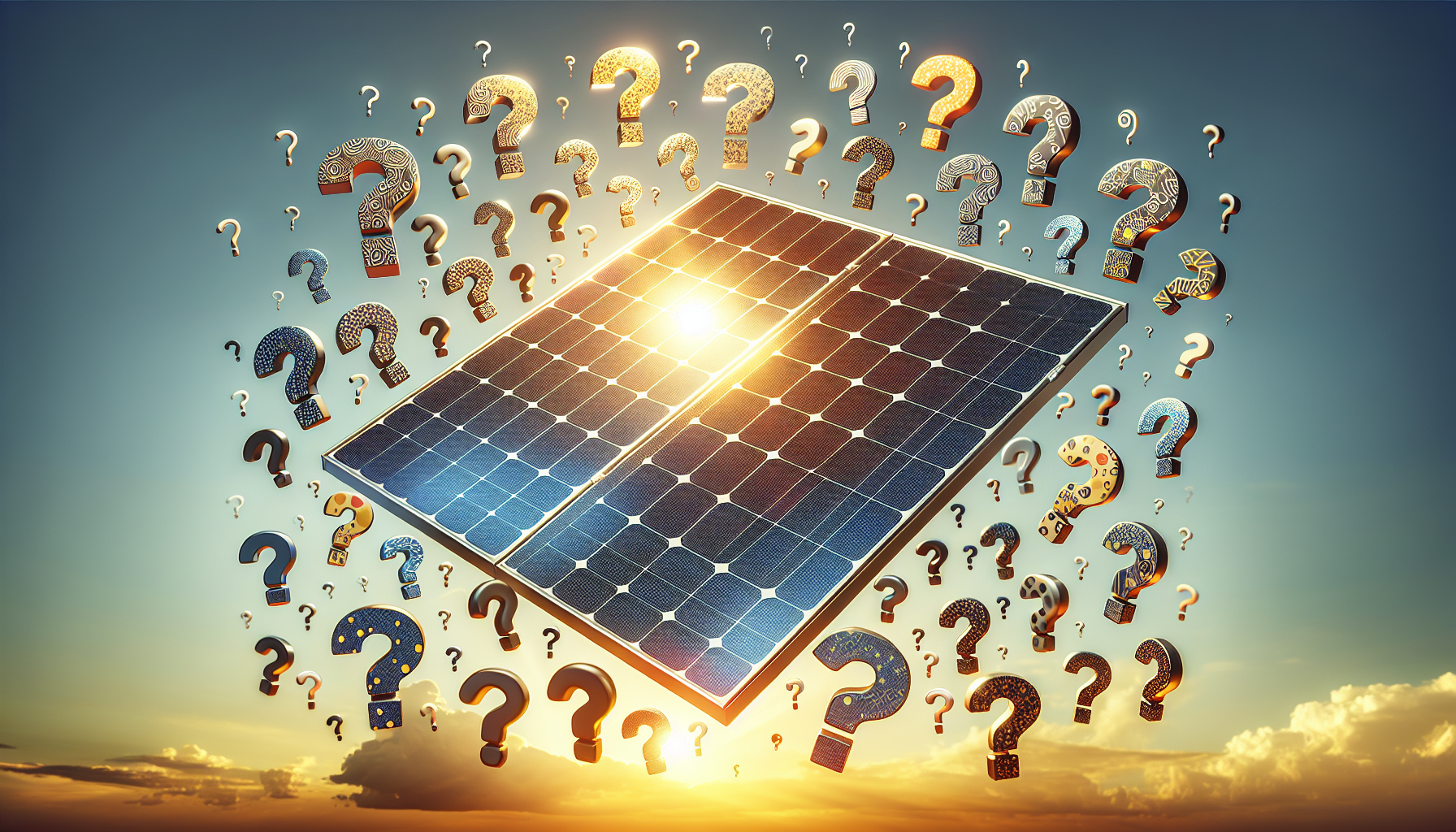
When selecting a solar panel warranty, engaging is crucial. Solar panel warranties vary widely, and their details can be as varied as the individual sand particles on a shoreline. It’s essential not only to check off features, but also to ensure that the level of coverage provided meets your unique requirements and hopes for your solar investment.
In our exploration, we will delve into how to assess different warranties’ robustness so that you can ensure your investment in solar panels is safeguarded by the strongest possible defense.
Key Questions to Ask
As you evaluate solar warranties, prepare to ask critical questions. Determine what is not covered by the warranty – are there any exclusions? Make sure to check if the warranty extends throughout your panels’ entire lifetime. Consider whether costs like labor and shipping are part of the coverage. Scrutinize every detail with a detective-like scrutiny to truly understand what value lies beneath the assurances offered by the warranty.
This examination requires peeling back multiple layers in order to reveal if the warranty will act as a dependable protector or simply an illusionary shield during times of trouble.
Evaluating Warranty Lengths
In the realm of solar panel warranties, the extended duration from 10 to 25 years signifies not just longevity but also a manufacturer’s assurance in their product’s durability.
Opting for a longer warranty on your solar panels could mean a greater initial investment, yet it offers sustained tranquility by safeguarding your solar panels throughout their period of operation.
Considering Additional Costs
Although the extent of a warranty’s coverage might be its most prominent feature, it’s imperative not to overlook accompanying expenses such as labor, shipping, and handling. These additional costs can stealthily transform what appears to be an extensive warranty into an expensive proposition. It is crucial to include these ancillary charges in order to fully gauge the real cost of a warranty.
Ensuring that you consider all economic aspects allows for confidence that your investment in solar panels remains secure both in protection and fiscal prudence.
What Solar Warranties Do Not Cover
A solar warranty might appear to be an unassailable stronghold, yet even the most robust defenses possess vulnerabilities. It is essential to understand what falls outside the protective boundaries of your warranty. A variety of occurrences and behaviors—from nature’s wrath to errors in human judgment—have the potential to breach your coverage shield, rendering you vulnerable.
It is crucial that we draw attention to typical exceptions and restrictions within warranties that require your vigilance in order to maintain the safeguarding of your solar installation’s integrity.
Exclusions to Watch For
While examining your solar panels warranty, be vigilant for the exclusions section—the critical weak point of the warranty can often be spotted there. Commonly, warranties do not cover incidents such as:
- Fire
- Theft
- Vandalism
- Natural disasters
Knowing these exclusions from the beginning allows you to take proactive measures to protect your solar system from such risks, thereby safeguarding your eco-friendly investment.
Impact of Improper Installation
A solid foundation for a house is comparable to the quality required for solar installation. If not installed correctly, it could lead to reduced performance and safety issues with your solar system as well as potentially invalidate your warranty, which can be disadvantageous for you.
It’s essential that only certified professionals undertake the installation of your solar panels. This ensures that both the warranty remains intact and that your system operates effectively over time.
Transferability and Bankability of Solar Warranties
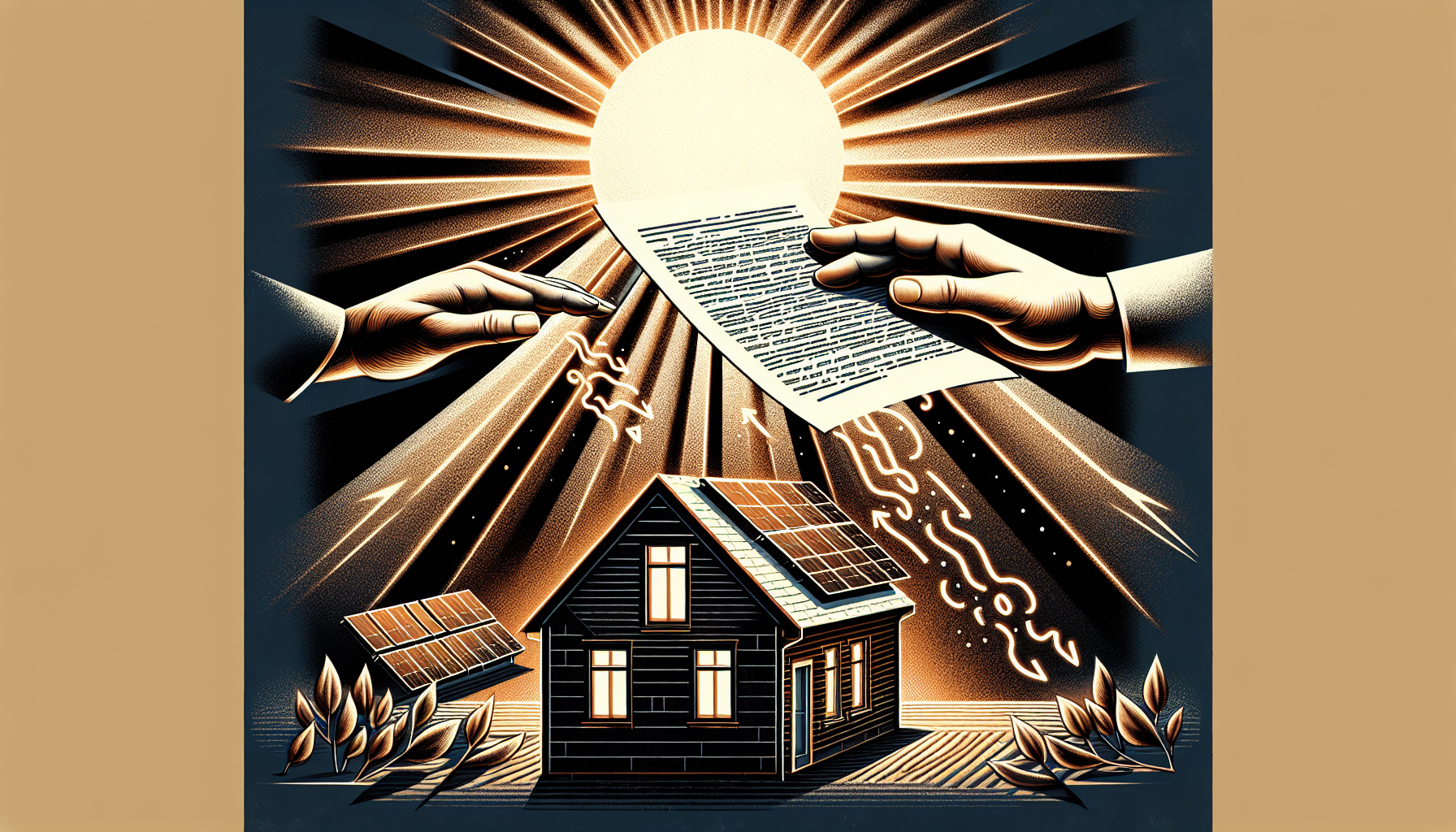
As circumstances evolve with the passage of time, the ability to transfer your solar warranty to a subsequent homeowner emerges as an invaluable attribute.
Equally important is the bankability of a warranty—the reliability that stems from the financial solidity of the manufacturer—forming a fundamental element in determining its value. These facets of solar warranties might not always capture attention, but are vital for enduring contentment and peace of mind.
We will evaluate how critical transferability and bankability are within the framework of solar warranties.
Transferring Your Warranty
Transferring a solar warranty is comparable to handing over the baton in a relay race. It guarantees that the safeguarding persists without interruption from one owner to another. Such an attribute can increase your property’s resale value since future owners will be able to revel in the same peace of mind that you had.
Knowing how to navigate the transfer process, which may range from just informing the installer to managing complex documentation, forms an essential part of maintaining your solar warranty throughout its term.
Manufacturer Stability
A solar warranty’s reliability hinges on the solidity of the manufacturer backing it. The foundation of a credible warranty is built upon manufacturer stability. As the solar industry continues to shift and grow, selecting a manufacturer with solid financial health guarantees that your solar panel warranties will withstand any economic fluctuations.
This kind of firm footing provides confidence that regardless of circumstances, the best warranties for your solar panels will persist as reliable protectors.
Solar Panel Warranty Length and Coverage
The duration of a solar panel warranty is indicative of the trust a manufacturer places in their product. Often extending to 25 years, these standard warranties encompass a significant part of the expected lifespan of solar panels, providing assurance beyond just time frames—some even include extended coverage options for enhanced peace of mind.
We will delve into the intricacies surrounding both the length and scope of such warranties to thoroughly understand how they safeguard your investment in solar panels.
Standard Warranty Periods
Warranty periods serve as the benchmark for evaluating all solar panel warranties. Usually extending from 10 to 25 years, they provide a fundamental level of assurance for your solar panels, encompassing protection against defects in materials and workmanship as well as performance assurances.
The duration of the warranty can be an indicator of both the quality of the solar panel and how much confidence the manufacturer has in its product’s longevity, assisting you in determining the enduring dependability of your investment in solar energy.
Extended Warranty Options
For individuals seeking an extra layer of security, extended warranty options act as a safeguard. These warranties extend the usual duration of coverage and can provide protection for up to three decades. They cover a wide range of issues including manufacturing flaws and reductions in performance.
Opting for an extended warranty, though less typical, is considered a prudent move to guarantee that your solar panels continue to be a reliable provider of clean energy far into the future.
Factors That Can Void Your Solar Warranty
Your solar warranty serves as a form of protection, yet it is not indestructible. There are specific behaviors or neglects that could invalidate your coverage, forcing you to bear the burden of expenses for repair or replacement alone. Whether it’s errors made during self-installation or unauthorized alterations, being aware of what could jeopardize your warranty is crucial.
By familiarizing yourself with these factors, you can steer clear of actions that might lead to the cancellation of your warranty and maintain its integrity.
Unauthorized Modifications
Your installed solar system operates with precision, and similar to any sophisticated device, altering it can lead to repercussions. Making unauthorized alterations or incorporating parts that don’t meet standards could not only negatively affect its efficiency but might also invalidate your warranty.
It’s essential to follow the manufacturer’s instructions and depend on accredited experts for modifications in order to maintain both your warranty and the smooth operation of your solar energy system.
Environmental Damage
Solar panel warranties are designed to address common problems. They do not protect against damages resulting from environmental incidents such as hurricanes and hailstorms. Although solar panels are constructed to be durable and resist weather conditions, severe climates can pose a significant challenge.
Homeowners have the option to enhance their coverage by opting for insurance-supported warranties or by incorporating their solar investment into homeowners insurance plans. This additional protection serves as a safeguard ensuring that investments in solar panels remain intact despite nature’s potential wrath.
Homeowners Insurance vs. Solar Warranties
Owning a solar panel necessitates an appreciation for the nuanced relationship between homeowners insurance and solar warranties.
Solar warranties usually address defects in manufacturing or challenges related to performance, while homeowners insurance is designed to offer protection against damage from external elements. Combined, they provide robust coverage by mitigating distinct types of risk.
It’s imperative to compare these two protective measures in order to understand their synergistic function and pinpoint any potential gaps in your coverage that might need additional fortification.
Overlapping Coverage
In some instances, your homeowners insurance and solar panel warranty might provide coverage for similar issues, such as the expenses involved in repairing certain damages. The differences are key though. Insurance typically covers damage from external threats, whereas warranties often cover defects that originate within.
To fully safeguard your solar investment, it’s essential to meticulously review both the warranty and insurance policy. This helps pinpoint where they intersect or diverge, thereby ensuring comprehensive protection of your solar panels.
Enhancing Protection
To ensure the utmost peace of mind regarding your solar panels, scrutinize and potentially augment the protection provided by your homeowners insurance as well as examining your solar warranty.
It might be necessary to expand your current coverage or possibly select a distinct policy for systems mounted on the ground or carports. This approach will reinforce defense around your solar array, protecting it from an extensive variety of potential perils and securing your financial commitment in them.
Benefits of Solar Warranties
Solar installation is significantly bolstered by the inclusion of solar warranties, offering a range of advantages that are essential. These warranties deliver extensive protection and ensure financial peace of mind while guaranteeing consistent efficiency from your system. In this discussion, we will explore how solar warranties can substantially augment the value you receive from your investment in renewable energy, providing multiple layers of benefit to your solar experience.
Financial Security
Solar warranties provide an essential layer of financial protection, safeguarding you against unexpected expenses for repairs or replacements. This ensures that your investment in solar energy remains both environmentally and financially prudent.
With the confidence that a warranty instills, you can be at peace with the knowledge that unforeseen performance issues or defects will not compromise your solar objectives or finances.
Increased Property Value
The assurance of a strong warranty on a solar system may enhance the appeal of your property, potentially raising its value. Homes equipped with solar installations and protected by warranties against upcoming problems can command higher prices from interested purchasers.
The potential to increase resale value could justify the investment in an extensive warranty for your solar system, providing financial benefits should you choose to sell your property in the future.
Ensuring Comprehensive Coverage
It’s crucial to create a robust buffer of security for your solar system, akin to deploying an extensive safety net—this means being ready for any possible outcome. Investigating the subtleties within warranty details and pondering over supplemental protection strategies are proactive measures that enhance the defenses of your solar investment from various possible hazards.
We’re going to explore approaches that will help you cover any voids in your warranty coverage, essentially wrapping your solar panels in a shield of assurance.
Reviewing Warranty Terms
Regularly examining the terms of your solar panel warranty is crucial to keep up-to-date with what’s included in the coverage. This vigilance becomes even more important as your system gets older or if there are any changes in the manufacturer’s policies.
By being proactive, you can adjust accordingly and preserve the necessary level of protection for your solar panels. Consider this process a continuous conversation with your warranty that ensures you remain knowledgeable and ready to address any issues that may arise.
Additional Protection Plans
For individuals seeking additional peace of mind, supplemental protection plans can act as an extra layer of security by expanding your warranty’s coverage. Such programs often include risk management and streamlined claims processing, providing a stronger level of defense for your solar panels.
This represents an investment in reliability to make certain that your experience with solar energy remains untroubled, even during unpredictable times.
Summary
We’ve traversed the terrain of solar warranties, uncovering the layers of protection they offer and the peace of mind they bring. From understanding the various types of warranties to recognizing what can void them, it’s clear that these warranties are the guardians of your solar investment.
Armed with this knowledge, you can confidently navigate the solar landscape, ensuring your green energy source remains a beacon of reliability for years to come.
Interested in going solar? Call for a free quote today!
Frequently Asked Questions
What’s the difference between a product warranty and a performance warranty on solar panels?
A warranty for the product ensures protection against material or workmanship defects in the solar panels, and a performance warranty promises that over a given period, the panels will generate an assured level of electricity to maintain their efficacy without significant reduction.
Can I transfer my solar panel warranty if I sell my house?
Certainly, the warranty for your solar panel can be transferred to a new homeowner. The procedure differs among manufacturers. Make sure to verify whether there is any necessary documentation or associated fees required for the transfer.
Does homeowners insurance cover the same issues as a solar panel warranty?
Homeowners insurance is designed to provide coverage for damages resulting from external threats such as fires or harsh climatic conditions. On the other hand, warranties on solar panels are explicitly in place to address defects and performance problems that originate from the manufacturing process of the solar panel itself.
As a result, they offer protection against different types of risks and do not overlap in their coverage.
What factors can void my solar panel warranty?
Ensure that your solar panel warranty remains valid by refraining from making unapproved alterations, attempting do-it-yourself installations, employing uncertified contractors, neglecting proper upkeep, and overlooking indications of damage. Neglecting these precautions may lead to the annulment of your warranty.
Are there any extended warranty options available for solar panels?
Indeed, certain producers of solar panels provide prolonged warranty periods that cover various product features and assure continued performance for additional years. These extended warranties might be available at an extra expense or may require specific criteria to be fulfilled.


